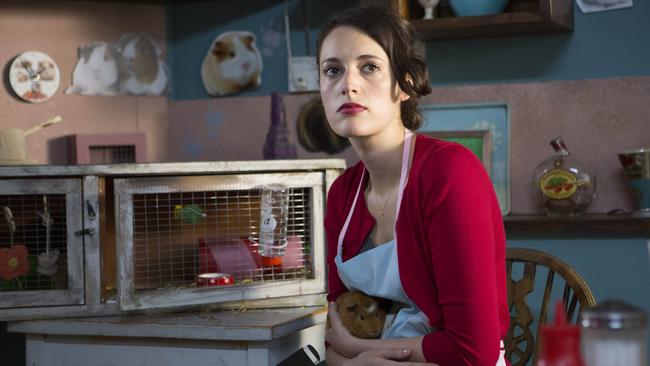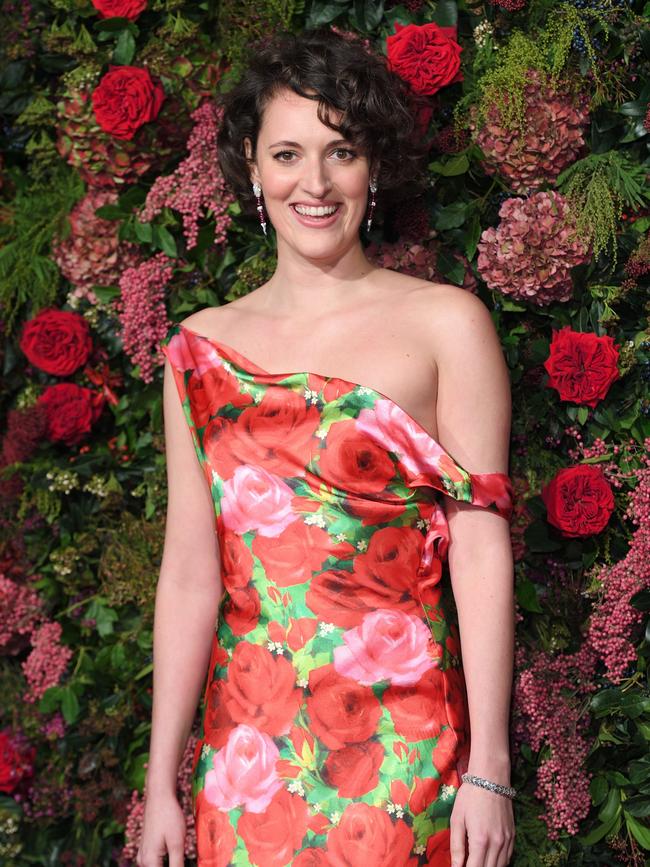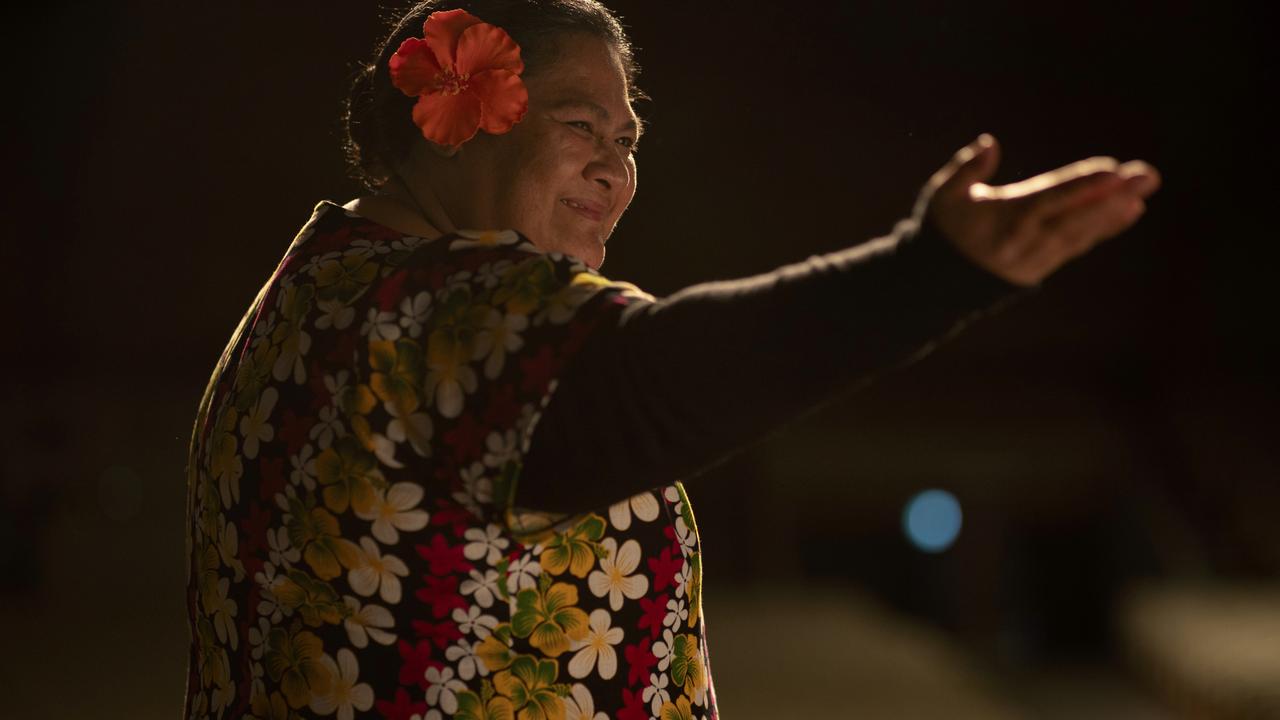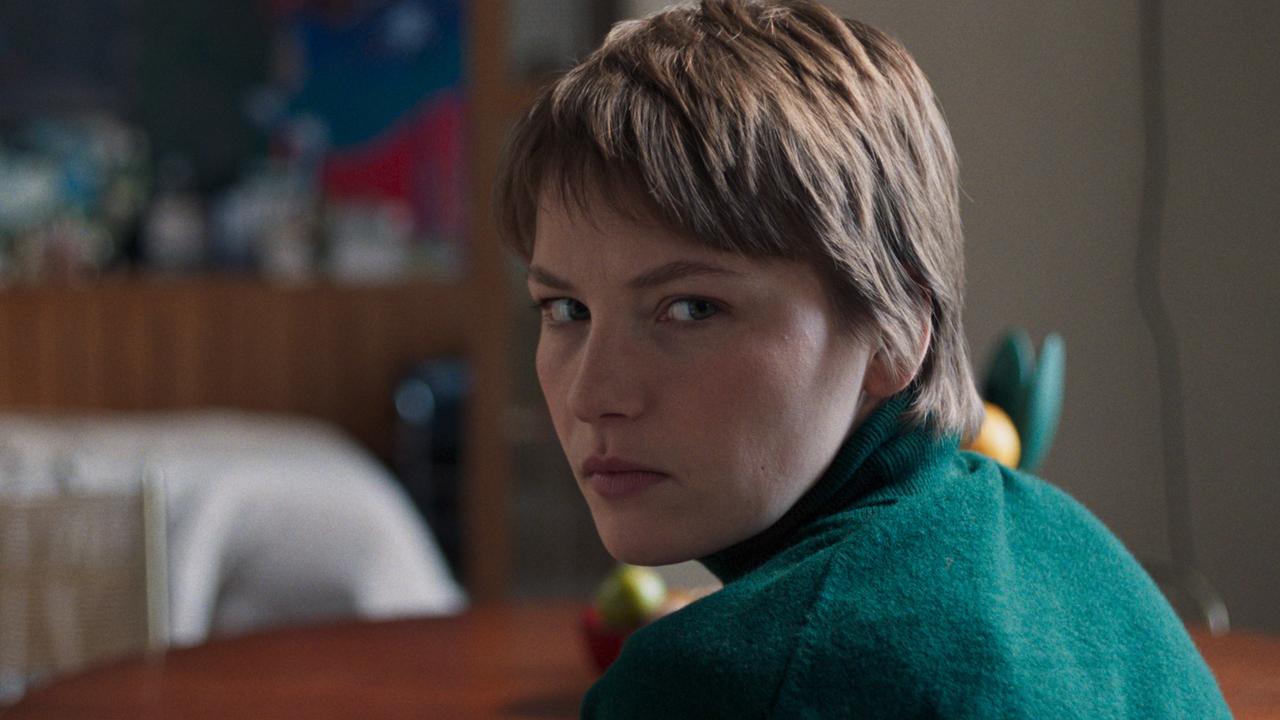Fleabag, Killing Eve’s Phoebe Waller-Bridge is on a roll
Writer-actress-producer Phoebe Waller-Bridge is one of TV’s most distinctive voices.

If all goes well, by the time you’re reading this Phoebe Waller-Bridge will find herself at a creative standstill. A self-imposed one. When we meet in London, the northern summer is drawing to an end and Waller-Bridge is two days into filming season two of Fleabag, the word-of-mouth television hit whose first season in 2016 elevated the 33-year-old writer, actress and producer to comedy prominence. (Fleabag was released on BBC Three in Britain and on Amazon Prime Video and ABC TV in Australia.)
Work on season two, Waller-Bridge says, will take her through the middle of autumn, after which she is going to take a break and spend time with her friends, “who have just been so supportive over the last four or five years and not minded that I’ve been under a duvet most of the time”.

Her words suggest a blue funk of inactivity but in fact Waller-Bridge means the precise opposite. Hers is not the duvet of indolence: “My bed is my office. That’s where I write. And the middle of the night, under my duvet, is when I think I write my best stuff.”
What has emerged from beneath the duvet is some of the best TV of the past three years, in an impressive quantity. Immediately before Fleabag, there was Crashing, another British comedy series she created, its six half-hour episodes featuring a group of 20-somethings who test one another’s nerves while bunking together in a disused London hospital.
And earlier this year came Killing Eve (on ABC), a mordantly funny espionage thriller for which Waller-Bridge served as head writer and showrunner. Killing Eve, which is based on a series of novellas by English writer Luke Jennings, concerns a bored mid-level officer in MI5, Britain’s domestic intelligence agency, who is jolted from her personal and professional malaise by the opportunity to pursue a female assassin who has been knocking off powerful figures across Europe.
Whereas Crashing and Fleabag suggested a sharp, clever young adult mining her personal experiences for material (Waller-Bridge played lead roles in both shows), Killing Eve demonstrated Waller-Bridge’s ability to shift into another gear — as a genre specialist — and nail it. For her efforts she received an Emmy nomination this year for outstanding writing for a drama series, while Sandra Oh, who stars as the show’s titular protagonist, Eve Polastri, was nominated for outstanding lead actress.
Perhaps the most impressive thing about Killing Eve is that, despite Waller-Bridge’s absence from it as an actress — and she is a terrific one, as quick with a zinger as Carole Lombard in an old screwball picture and as peculiarly sexy-gangly as Jeff Goldblum — the show bears her unmistakeable authorial stamp: what Jennings, the inventor of Eve and her assassin quarry, Villanelle, describes as “Phoebe’s dark, no-limits sense of humour”, and what Oh summarises as “this extremely unique sensibility of someone who is confident, but not arrogant-confident”.
Lately, though, Waller-Bridge’s distinctive voice has been strained, metaphorically speaking, by the demands of writing three TV shows in a compressed period, their deadlines often overlapping.
“There was a point in Killing Eve where I felt like I had no brain left, like I was just melted. I couldn’t make a joke in real life because I had to save any humorous energy for my writing at the time. I literally felt like I lost my personality. If I thought of a joke, I had to stop myself from telling it to anyone. I was like ‘No — that has to be channelled into the page!’ ” she says.
This melted feeling is why Waller-Bridge is so looking forward to going on creative hiatus after season two of Fleabag wraps.
“Not having a deadline,” she says, “is gonna be really good for my brain.”
Waller-Bridge is cagey on the new season, which is expected to air next year, acknowledging only that there is a time jump forward and that she wrote in a new character especially for Irish actor Andrew Scott, best known for playing Moriarty opposite Benedict Cumberbatch in Sherlock.
Of all her creations, Fleabag is the one that Waller-Bridge holds dear. At the time of its conception as a 10-minute monologue, she was scuffling along as an actress, a few years out of the Royal Academy of Dramatic Art. (Waller-Bridge grew up as the middle child in an upper-middle-class West London family.)
She developed the piece with her friend Vicky Jones, a writer-director with whom she founded a theatre company, DryWrite, which presented new works by young playwrights at London’s Soho Theatre. By 2013, Fleabag, the stage version directed by Jones, had evolved into an hour-long, gleefully transgressive show that was the talk of that summer’s Edinburgh Festival Fringe. The show’s success there, Waller-Bridge says, “lit the touch paper for everything”.
In the relatively small world of British TV, it became the season of Get me that Phoebe girl! A pilot script she had written several years earlier, only for it to languish in development hell, was resurrected by the company that commissioned it, and that became Crashing. Waller-Bridge also filmed a TV pilot for Fleabag for BBC Three, though Crashing, which is now on Netflix, jumped the queue and became a full-fledged series first.
Most intriguingly, veteran TV producer Sally Woodward Gentle — whose credits include Whitechapel and The Durrells in Corfu — was inspired, merely on the basis of having read the script for Fleabag, the play, to give Waller-Bridge a call. “It was a great script that had guinea pigs in it, and I thought, ‘That is a person I’d like to work with,’ ” Woodward Gentle says. (Fleabag runs a failing cafe decorated with guinea pig portraits and bric-a-brac.)
Woodward Gentle had recently acquired the TV rights to Jennings’s Villanelle stories. The “naughty energy” of Waller-Bridge’s work, as she puts it, seemed like a good match for a character as perverse as Villanelle, a couture-obsessed sexual omnivore who happens to be a stone-cold killer. Jennings readily bought into Woodward Gentle’s vision.
“I wanted someone who could occupy the mind of Villanelle, who is absolutely appalling yet who you find yourself cheering on,” he says.
“And I saw that in Fleabag. She is a character who is asking for you to be appalled by her.”
For her part, Waller-Bridge was surprised but undaunted by the proposition of writing Killing Eve. Even in the launch phase of her TV career she was inundated with what she calls “messy young woman in the city” pitches.
“I had the mentality of, ‘I want to have a go at anything and everything,’ ” she says.
Using Jennings’s stories as raw material, Waller-Bridge positively revelled in writing a cat-and-mouse thriller with two female leads. She was keen, she says, to avoid the “traditional tropey stuff” of the genre — warehouses, stake-outs, blindfolds, gunplay, machismo — and work out the nuances of the characters themselves, which would then drive the action.
In the first episode of Killing Eve, Eve intuits something that her peers don’t — that the unidentified assassin they are seeking is a woman — because the killer’s most recent murder took place in a public space, and the victim, a misogynistic Russian politician, would not have regarded a woman as a threat. Eve’s hunch is validated when the victim’s girlfriend, through a haze of drugs and trauma, describes the assassin, in colloquial Polish, as flat-chested. This prompts Eve to call her assistant, Elena (Kirby Howell-Baptiste), to request Elena pull up the portrait of a known active female assassin in their database. When Elena has the mug shots on her screen, Eve asks, “How big are her tits?” The answer: “Massive.” In other words, not the woman they are looking for.
“It just instantly said so much about the characters for me,” Waller-Bridge says. “The friendship between Eve and the assistant is something you instantly understand because you can’t say tits to your boss in a boardroom.”
These layers of quirk and backstory are enhanced by a top-shelf cast that includes not only Oh and Shaw but also Jodie Comer, a British actress who brings a deranged hauteur to Villanelle, carrying out her kills with a childlike sense of play and an heiress’s sense of privilege.
Killing Eve’s second season is being shot at the same time as Fleabag’s, which precluded Waller-Bridge from resuming her head-writer duties on the former. Partly on her recommendation, Killing Eve’s producers hired her close friend Emerald Fennell.
What Waller-Bridge wants to create next is a movie. Having proved herself in TV, she is excited by the challenge of working within the finite story structure of a film. But as for specific concepts? She’s got nothing. That’s what the pending brain break is for — to refuel, she says, and “keep things fresh, keep surprising people”.
Fleabag is streaming on Amazon Prime Video; Crashing is streaming on Netflix; Killing Eve is streaming on ABC iView.



To join the conversation, please log in. Don't have an account? Register
Join the conversation, you are commenting as Logout